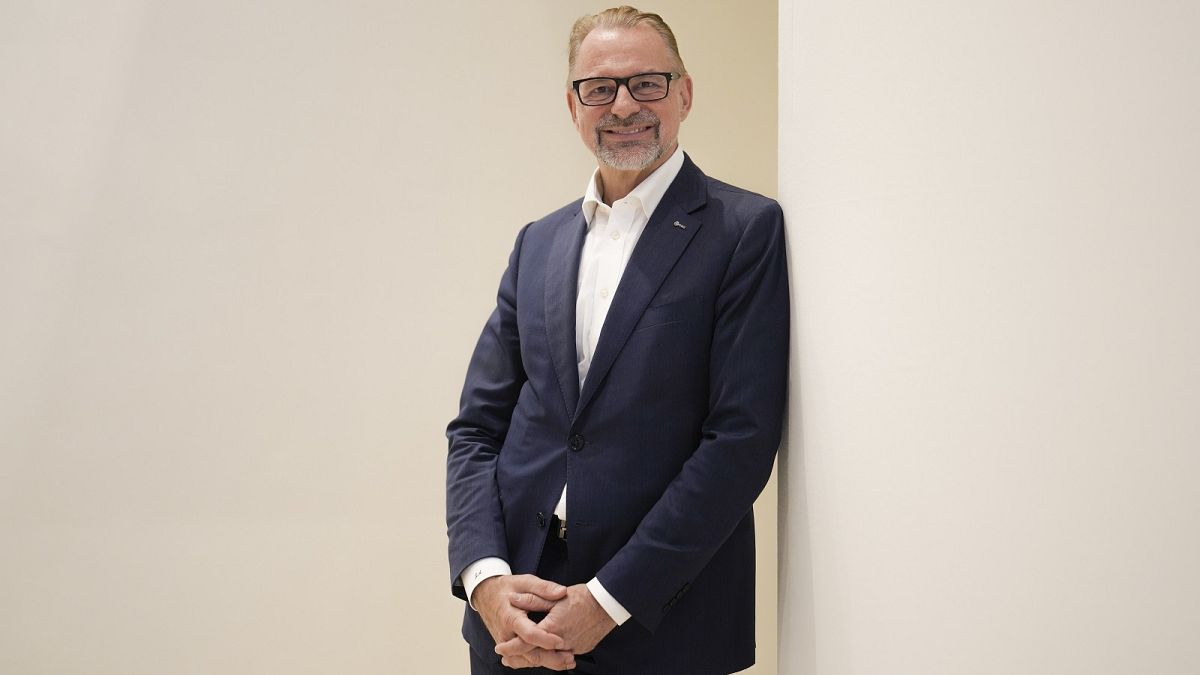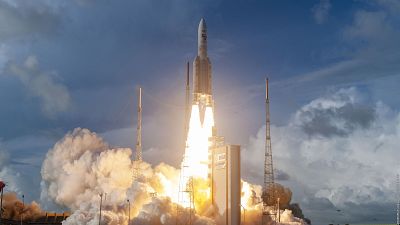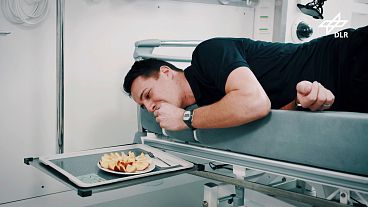Speaking in Davos, the head of the European Space Agency (ESA) was optimistic that Europe had emerged from an ongoing crisis after years of rocket delays.
"European access to space is again guaranteed," the director-general of the European Space Agency (ESA) declared in Davos, ahead of the highly anticipated inaugural launch of the delayed Ariane 6 rocket in the summer.
Speaking to Euronews Next at the World Economic Forum’s annual meeting, Josef Aschbacher was optimistic about Europe’s ambitions in space, in part thanks to the return to service of the Vega-C launcher and the first launch of the next-generation Ariane rocket.
"Europe's outlook actually is pretty good because we had a crisis in launchers last year and we have really not wasted the crisis," Aschbacher told Euronews Next.
"We have made very important decisions in order to get out of it much stronger, meaning that, on one side, we have Ariane 6 coming to the launchpad. That means it will have its inaugural flight and therefore continue the very successful, decades-long successes of Ariane 5," he added.
"We also have Vega-C coming back to the launchpad to return to flight. And we have made decisions to exploit Ariane 6 until at least the end of this decade, and Vega-C, meaning that we have guaranteed access to space again".
'Painful' lessons from Ariane 6 learned
Initially slated for its first flight in 2020, the proposed replacement of the Ariane 5 launcher - the workhorse of ESA’s operations for more than two decades - has suffered repeated setbacks and delays. It will now launch in June or July.
The Vega-C rocket, which is slated to launch again in November, was also taken out of service after failing to launch in December 2022.
The situation was further exacerbated by Russia's invasion of Ukraine in February 2022 which saw international relations with Roscomos, the Russian space agency, sour, and the use of its Soyuz rocket put out of reach.
Despite the challenges, ESA has learned "painful" lessons from the crisis and has emerged in a stronger position, according to Aschbacher.
"We have learned a lot; sometimes a bit painful, I have to say. But, we have to get out of out of the crisis stronger. And I think Europe really has made the right decisions to do exactly that," he said.
"What we have learned, of course, is on one side, we need an overlap between Ariane 5 and Ariane 6. And this is something that will not happen in the future. So we will make sure that the new launcher that comes after Ariane 6 will overlap with Ariane 6 itself.
"We have also learned that we can actually emulate a system that works pretty well in the United States, which has created SpaceX and Falcon 9".
The system in question is opening up to competition from the private sector in order to innovate, something which the US space agency NASA has already fostered.
Europe's space autonomy
The launcher crisis has raised questions about Europe’s autonomy when it comes to space missions and its reliance on other actors in the industry, including Elon Musk’s SpaceX, to deliver crews and resources into orbit.
ESA's Euclid telescope was blasted off on its mission onboard a SpaceX Falcon 9 rocket in July, with plans to launch the agency’s Hera mission to the Didymos binary asteroid in October.
"Europe is very autonomous, but of course, we want to be even more autonomous, and therefore we are increasing our technology independence, our programmes," Aschbacher told Euronews Next.
"So, therefore we are building up strength because also for international cooperation, you are only a good partner for international partners if you have something on the table to offer.
"And this is what we need to do to build up our autonomy, to build up our capacity and be a strong partner also for international global cooperation in space".



